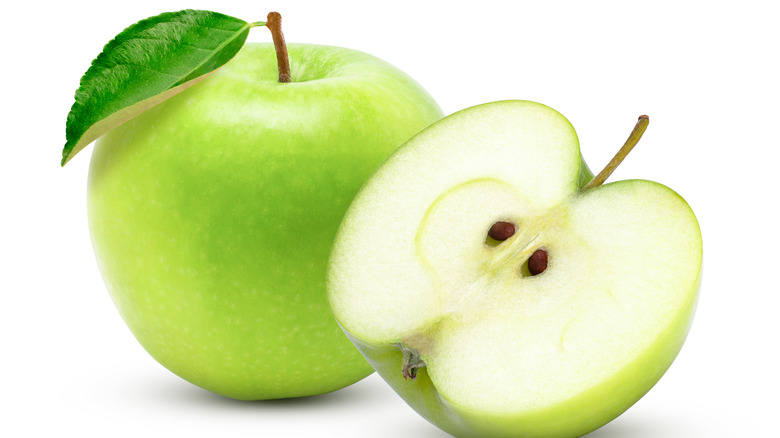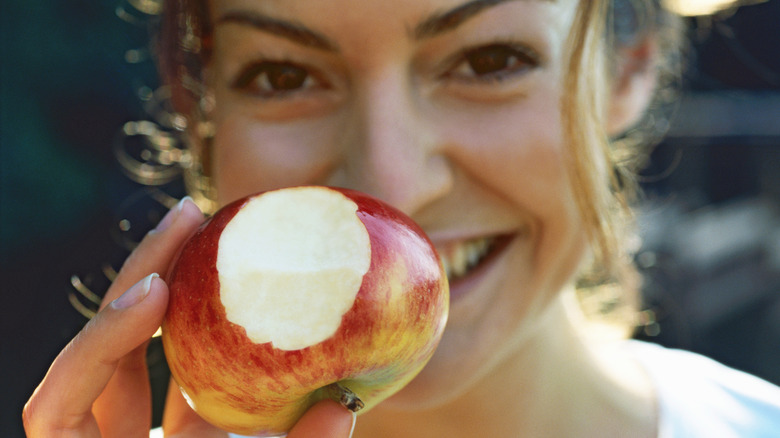Are Apple Seeds Poisonous?
Are apple seeds poisonous? It seems like a simple question, and the short answer is yes. But before you toss the literal fruits of your actual labor during the apple-picking season, look at the metrics involved and the minimal risk. You can hold onto all of your apple pies, muffins, applesauce, and apple butter, as you would have to resort to some significant evil queen-like antics if attempting to capitalize on any poisonous apple effects. If you were looking for an excuse to avoid eating apples, we're sorry to disappoint you.
According to Healthline, apple seeds contain cyanide, which, as anyone familiar with the infamous death of Joffrey Baratheon can tell you, can be fatal to humans. Cyanide naturally occurs in certain plants as a built-in insect and disease repellent. Technically, the plant's compound is amygdalin, which breaks down into the toxin cyanide and has been promoted as a cancer treatment that is neither scientifically proven nor FDA-approved.
Not only is the amount of cyanide in a single apple seed an insignificant microdose that the human body can detoxify, but the cyanide is also well-contained within the hard shell of each seed. Even if you consume a whole apple's worth of seeds, as many other mammals do, they will likely pass through your digestive system without releasing any cyanide unless you are committed to thorough chewing before swallowing. Based on the CDC's toxicity data, a fatal dose of cyanide is 1-2 milligrams per kilogram of weight.
How many apple seeds are dangerous to humans?
How many apples' worth of seeds would you have to eat (and chew thoroughly) to get to a lethal dose? We'll put it this way: You are likely to get a severe stomachache from the large quantities of the fruit before you reach any harmful levels of cyanide. To put things into perspective, Healthline claims you would need to eat around 200 apple seeds (or about 40 apples' worth) before being in danger of cyanide poisoning.
Other tree fruits and nuts, such as cherries, peaches, apricots, plums, pears, and almonds, also contain cyanide within their seed pods. However, unless you find yourself craving the particular, dental-destroying crunch of a handful of apricot kernels, you aren't likely to find your demise in any sort of fairy-tale-character-ingesting-poisoned-fruit sort of way. Instead, you will have to live out your "Snow White" fantasies by recruiting a gaggle of quirky, much-shorter-than-you friends — and then you can invite them all over for a decidedly un-poisonous afternoon of delicious, apple-centric baked goods.

